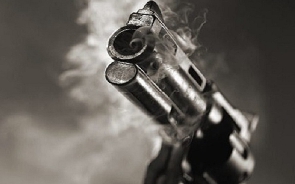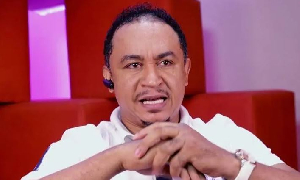Minister of Finance and Economic Planning, Mr. Yaw Osafo Maafo says in view of the sensitive position that banks especially the Bank of Ghana play in the day to day running of the economy, it would be disastrous for the staff of the banks to think of going on strike.
Mr. Osafo Maafo said it is the banks, especially, the Central Bank, that handles the day to day cash transactions and that if the staff decides to go on strike then the entire economy would grind to a halt.
Moving a motion in Parliament last Tuesday for the second reading of the Banking Bill, Mr. Osafo Maafo noted that the bill could not have come at a more appropriate time than this, especially, when the operations of some banks are not up to the acceptable international standard.
He said the bill would strengthen the Bank of Ghana to play its role as an effective supervisor of all the banks and thereby inject sanity into their operations. According to the Finance Minister, one advantage of the bill is the increase in the capital adequacy ratio from 6% to 10% to broaden their capital base to enable them support customers better.
He lamented that as of now no bank is able to guarantee a loan of about one million dollars ($1million) for customers due to the poor capital base.
Major S.K Amponsah, Member of Parliament (MP) for Mpohor Wassa East cautioned Ghanaians not to find ways of getting quick money so as to deal with banks, which are not all that solvent.
He said it is very important that bank staff desist from going on strike and also advised that a way should be found for people not to carrying big cash up and down in doing business.
While calling on farmers to support the Akuafo Cheque System, Major (R'td) Amponsah also urged all other customers to transact with cheques.
Hon. Jacob Arthur, MP for Mfantsiman West in his contribution asked that the Bank of Ghana be strengthened to enable customers have the problems of easily assessing cash at the banks solved quickly.
He cautioned against money laundering, saying there should have been a provision in the bill to check such a trend adding that some of the monies are drug monies, which are such that their owners look for banks with liberal regulations to bank with.
Hon. Arthur called on the banks to devise means of reporting unusual deposits vis-a-vis the normal trend of persons depositing money over a period of time under susspicious circumstances.
Nana Asante Frimpong, MP for Kwabre, for his part was not happy at the increase in the rate of bank drafts due to increase in the utility bills of the banks.
He called for reasonable and accommodating rates to enable customers do more business in drafts.
The MP for Upper Denkyira, Mr. C.O. Nyanor said some banks are not able to meet the demands of their customers during withdrawals and supported the raising of the capital adequacy ration to enable banks meet high withdrawals by their customers. This, he said, would make customers have access to their monies whenever they want it.
Hon. Nkrabeah Effah Dartey, Deputy Minister for Local Government and Rural Development and MP for Berekum in his contribution wondered why credit unions and private banks are making a headway whilst those of the state are still wallowing in the doldrums and attributed the cause of collapse of some businesses to lack of credit from their banks.
Mrs. Grace Coleman, MP for Effiduase Asokore, for her part, called on the Bank of Ghana to ensure that all the banks in the country adhere to its policies.
Business News of Friday, 21 November 2003
Source: Independent
Bank Staff Can't Go On Strike -Minister
Opinions











